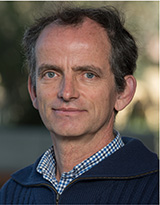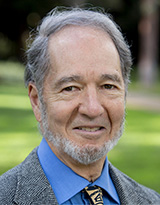Blue Planet Prize
Current Year Winners
The commemorative lectures by the winners will be held at The University of Tokyo on December 12 (Thursday), at the Kyoto University on 14 (Saturday). Details will be posted on our website at a later date.
| 2019 (28th) Blue Planet Prize Winners | |
He has clarified the land use changes taking place on a global scale, the effects on ecosystems and the effectiveness of policies, using satellite remote sensing technologies and his original method of time-series analysis. From early on, he has pointed out that land use changes are causing adverse effects globally on natural systems. He has explained the relationship between economic activities and land use by linking socioeconomic data. His research activities have significantly influenced how public authorities and private enterprises develop land use policies for conserving forests. Those research findings have provided scientific support for making the most of forest certification programs, for implementing green purchasing commitments, and for promoting green procurement. He has made great contributions by stimulating the adoption of concrete interventions and practices to improve the sustainability of socioeconomic activities from the individual to the global scales. |
His ideas and arguments presented in his trilogy, Guns, Germs, and Steel, Collapse, and The World Until Yesterday, include civilization theory, organizational theory, and society theory, and were created as a result of his exceptional intellectual explorations. They provide deep insight into the roots of today's environmental issues from a very broad perspective, explaining the significance of environmental issues in the history of human civilization from a unique perspective. In Collapse, he has listed 12 items as major factors in global environmental issues. He has regarded environmental issues as fundamental to any study of human history. Based on this concept, he has influenced the consciousness of contemporary civilization across nations and generations toward a mindset of thinking about the next steps for civilization. These achievements of Professor Diamond are highly appreciated. |
| > For More Details |
|
| Remarks from the Award Recipients upon Notification of their Selection | |
I am extremely honored to receive this presigious prize. It is a great encouragement to continue working even harder to better understand changes in land use around the world, and to improve the design and evaluation of policies to promote sustainable land use. |
The English-language expression “out of the blue“ means “totally unexpected,“ and “dropping out of the blue sky.“ In fact, the phone call telling me of my winning the 2019 Blue Planet Prize did come to me “out of the blue,“ so for me the prize is doubly blue. |


 Photo Download (Zip:2.2MB)
Photo Download (Zip:2.2MB) Page Top
Page Top









